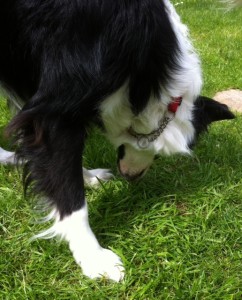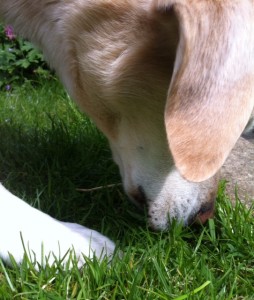Pets and Pesticide Poisoning.
Spring has sprung (almost!) and many of us will be looking forward to getting out into the garden. There are many pesticide products approved for use in the UK and many gardeners use them. However, these products can also pose a danger to pets. This Holidays4Dogs article will look at the subject of pets and pesticide poisoning and offers alternatives, which are safer for animals and the environment.
Pesticides are capable of putting pet’s and people’s lives, at risk. In addition, they can have a detrimental effect on the environment too. Pets can also be exposed to pesticides used on agricultural crops in the countryside as well as in towns and urban areas, where councils use pesticides in parks, communal spaces and footpaths.
as well as in towns and urban areas, where councils use pesticides in parks, communal spaces and footpaths.
Many products are deemed to be safe by manufacturers. Lots of gardeners use pesticides in their own homes, to control pests such as slugs and snails.
Other products, such as lawn fertilisers can also have a harmful effect on animals. Some fertilisers contain nitrogen and phosphorous, both of which can be toxic to animals.
People may think it is fine to sprinkle on a lawn product, for example – then wait for it to rain. However, check the small print, because some granules are only deemed to be ‘safe’ once they have been watered in. Left un-treated they remain potentially harmful.
Pesticides and their impact on pets, animals and the environment.
To achieve the picture postcard garden, thousands of us today use various products over the spring and summer months. However, many plant and lawn care products, are manufactured using synthetic ingredients.
According to some experts, lawn chemicals can remain active anything from a month, to over a year. All the while, they release toxic vapours. Doctors are not always aware of the dangers of pesticide poisoning, as symptoms are similar to flu-like illness, or allergy.
There is growing pressure for the UK government to reduce the use of pesticides in the countryside, as well as in domestic gardens. However, despite this, according to Bumblebee Conservation Trust, the UK Government have approved a banned pesticide for emergency use for the fourth year running. The pesticide will be used to treat sugar beet fields, but it has a devastating effect on the bee population.
Symptoms of pesticide poisoning in pets.
These symptoms can arise with just one single exposure to pesticides. It is possible, for example, that even after watering in – lawn products may not be safe for dogs to walk on. There have been reports of cases of dogs taking in the toxins from lawn products by licking contaminated paws. Symptoms include;-
Diarrhoea.
skin, or eye, irritation.
Burns.
Breathing difficulties.
Malaise, or disorientation.
Seizures.
In severe cases, death can occur.
Alternative products.
There are many pet friendly organic alternatives for use in gardens and on lawns. Considering the effect that synthetic chemicals may have on your pet’s health, it is worthwhile looking into these safer products. 
Before you decide to buy pesticides of any kind, consider first whether it is really necessary. Is it possible to control weeds, or pests another way? Are there suitable green alternative? For instance, rather than treat a whole lawn, is it possible to dig out dandelions and other weeds by hand?
It is important to remember that if you use pesticides at home, you are legally responsible for using and storing these chemicals in an effective manner.
Avoid storing pesticides for any length of time. Before you use any product check the Health and Safety Executives database to confirm whether the product you have is still legal to use. You can follow the link here; https://secure.pesticides.gov.uk/garden/prodsearch.asp
Conclusion.
It is clear that nationally and internationally Governments need to address the impact that pesticides have on animals and the environment. We can all do our bit by reducing or stopping our own use of pesticide products in our own domestic gardens.
Additionally, while researching for this article on pets and pesticide poisoning, we found that – according to Pesticide Action Network UK –
“five pesticides which are not permitted for use on agricultural crops due to their impact on human health and/or the environment, are used widely in tick and flea treatment for cats and dogs”. This is an alarming situation. You can read more about this here.
For other Holidays4Dogs articles on the dangers of household products such as antifreeze and laundry pods to pets and wildlife – follow the links here and here.



